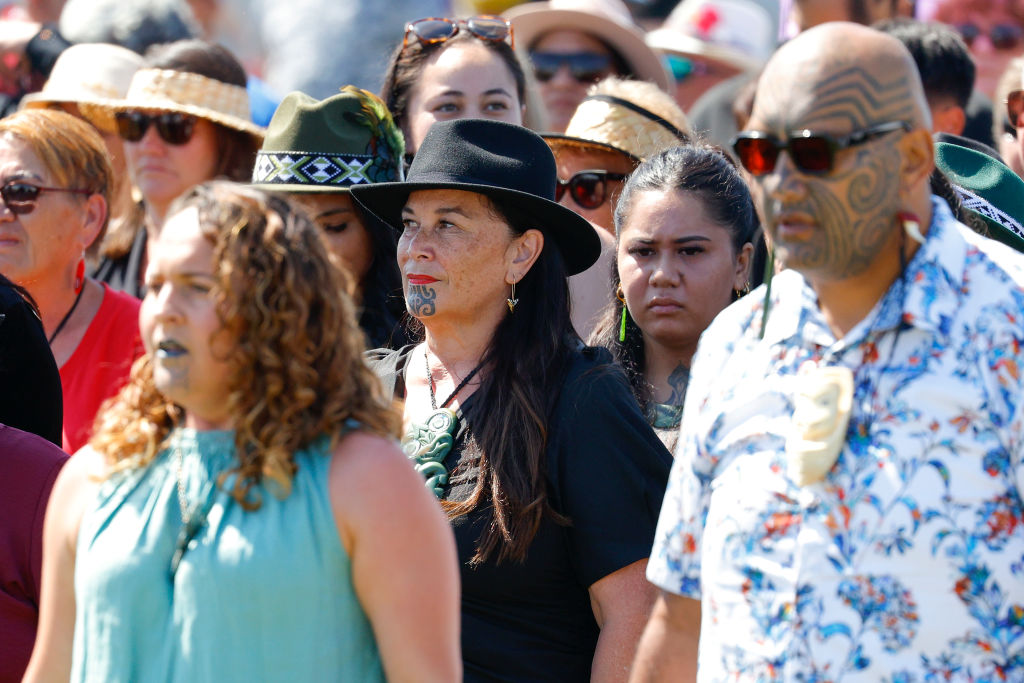Māori Party President John Tamihere, who heads a web of interlinked organisations is at the centre of the allegations.
Twelve New Zealand government agencies, including the police, are now investigating the Māori Party (Te Pāti Māori) over multiple allegations that money and resources supplied to connected organisations were misused for electioneering.
Acting Public Service Commissioner Heather Baggott confirmed that she convened a meeting of the heads of Stats NZ, the Ministry of Health and Health New Zealand, the Ministry of Social Development, the Ministry of Justice, the Department of Internal Affairs, Te Puni Kōkiri (the ministry responsible for Māori development), Oranga Tamariki (the ministry for children and young people), and the Department of the Prime Minister and Cabinet, along with the Electoral Commission and the police.
Stats NZ is investigating allegations of misuse of the census data, while the Ministry of Health and Health NZ are trying to ascertain whether or not COVID and other immunisation data was appropriately used and managed by marae associated with the party. “Marae” refers to a meeting ground or complex for the community, or the group of people who run the complex.
Similarly, Oranga Tamariki is also seeking to determine whether its data has been appropriately used and managed.
The NZ Police have also received complaints and are investigating.
Stats NZ has notified the Privacy Commissioner, who has requested information regarding the reported allegations.
Attack on Māori: President
The party’s president, John Tamihere, characterised the allegations as part of a continuing attack on “all matters Māori” and called the claims “baseless innuendo.”
“The fact of the matter is, as usual, Māori are being used as a scapegoat to cover up and deflect from what is really going on in this country,” he said in a statement. “Te Pāti Māori are endlessly attacked and the matter is being made into a race debate through no fault of our own.”

However, the allegations were made by former marae workers, many likely to be Māori themselves.
At the core of the controversy is the contention that the Māori Party improperly used census data—which various marae in Auckland were paid to collect on behalf of Stats NZ—to enrol people onto the Māori electoral roll and encourage them to vote for the party’s candidate in the Maori seat that covers Auckland.
At the time, the candidate, Takutai Moana Kemp, happened to be CEO of one of the Manurewa Marae, which function as community help centres.
Since that allegation emerged, others have followed. These include the claimed use of “short code” telephone numbers, originally provided by government agencies to encourage Māori to get vaccinated, being used to drum up support for the party and for Ms. Kemp.
Ms. Kemp succeeded in winning the seat by a narrow margin.
Internal polling close to election day put defeated senior Labour MP and former cabinet minister Peeni Henare approximately 800 votes ahead of Ms. Kemp, but when votes were counted, he lost by just four.
There is even disagreement over whether Ms. Kemp was at the Manurewa Marae on election day, which would have been a breach of electoral law unless it was a brief visit to cast her own vote.
Local media NewstalkZB reported that several people present on the day remember seeing Ms. Kemp several times in the area on the day.
However, in response to an Official Information Act (OIA) request from a New Zealand citizen about Ms. Kemp’s presence, the Electoral Commission said there was “no evidence” she had been there (pdf).
Meanwhile, the Electoral Commission confirmed in an OIA (pdf) that it received seven complaints of “treating” at Manurewa Marae during the voting period and 17 complaints relating to unlawful election advertising by the Maori Party.
Treating is an offence that occurs when incentives, such as free gifts, are given to people in return for their vote. However, it must be done “corruptly” to be considered treating.
Prime Minister Directs Public Service Commission to investigate
At his post-cabinet press conference on June 10, Prime Minister Christopher Luxon announced that he’d directed the Public Service Commission to initiate an independent inquiry into the misuse of census data and conflicts of interest.
He said the allegations are serious, and “go to the heart of trust and confidence” in New Zealand’s processes.
“New Zealanders must have confidence the data they provide to government agencies is used appropriately,” he said (pdf).
The Maori Party was not notified before the prime minister’s announcement. When asked why, Mr. Luxon told reporters, “It’s moving quickly. We are in the fact-finding phase of this investigation.”
He said anyone with information should approach the police.
In looking into potential conflicts of interest, investigators will be faced with work to untangle the connections between a web of organisations, most of them run by Mr. Tamihere or his family members.

